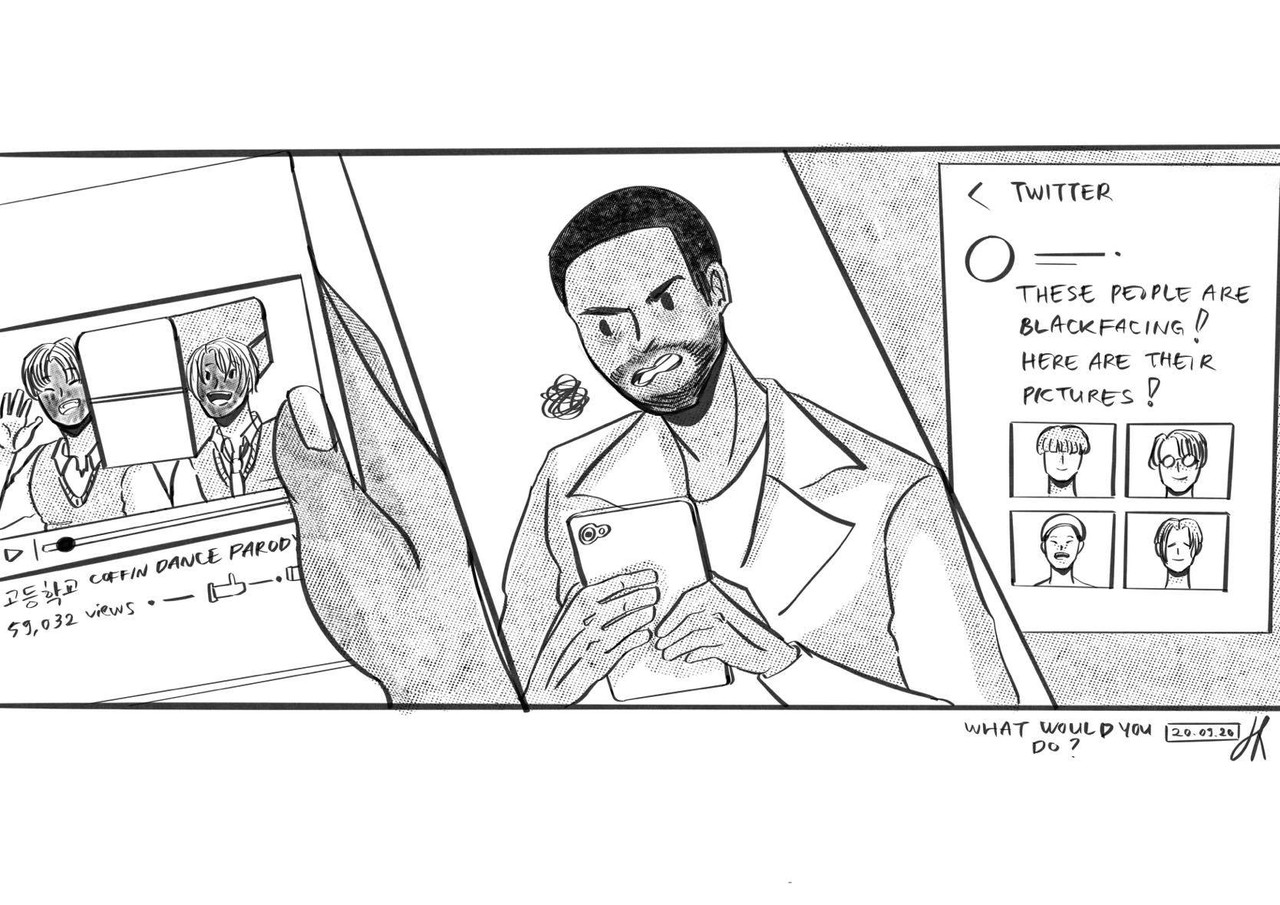Sam Okyere, Ghanaian celebrity in South Korea, has received public backlash from criticizing a yearbook photo of Uijeongbu High School students. The photo included five students parodying the Dancing Pallbearers or the “coffin dance”, unfortunately, in blackface. This debate will explore multiple perspectives on the event in an attempt to explore Korean society’s stance on the issue, as well as explain societal causes of such incidents.
Some things are only ever wrong, with no grey area — racism is one of them. While the Black Lives Matter (BLM) movement was still sweeping across the occidental world, things were going about as peacefully as they ought to here, until a Ghanaian TV personality based in Korea decided to one day break the news: “You know what? Blackface ain’t a joke.” And then he had to delete his Instagram account.
Okay, it was a little more complicated than that. To give a little background, the controversy started in Uijeongbu high-school, a school famous for its yearly graduation photoshoot in which students parody iconic events, persons, or fictional characters that trended that year. This year, a group of students dressed up as the Dancing Pallbearers, and decided to paint their faces black to make themselves appear as similar as possible to the original band.
As their photo circulated the internet, the response of netizens was divided into two: either that the students clearly had no racist intentions and could be forgiven, or that wearing someone else’s skin colour as a costume is disrespectful regardless. While this was still one of those trivial day-to-day online disputes, the discussion was ignited by Sam Okyere’s Instagram post. He pointed out the offensiveness of blackface and expressed disappointment towards the ignorance that is still prevalent in Korean society. It is true that his way of communication was imperfect. As a person of influence, he could have censored the faces of the students, especially since they are minors. And though he appears to have hash-tagged “teakpop” (referring to KPOP gossip) to raise international awareness, it was unnecessary and misleading; he ended up shaming Korean pop culture, which was irrelevant to the incident.
Despite the fact that his post contained a valuable point, the imperfection of his post was exploited by those who disagreed with him. The discussion was no longer about how the Korean society still lacked awareness about other cultures. It was diverted to Okyere’s hypocrisy as an individual, which supposedly took away his “right” to point out the wrong he saw. Yes, he made mistakes. But if it is a criticism about him as a person rather than about the argument itself, they should be two separate discussions, rather than one diluting the rightfulness of the other.
And only one thing can be said for the defenders of the oblivious Uijeongbu high students: what’s definitely wrong can only be wrong. It is not a matter of perspective or intentions. It is true that Korea has low levels of racial diversity, and the long and painful history of blackface dating back to the 19th century is unknown to many Koreans. However, in the contemporary age of information, where we have almost unlimited access to an abundance of resources, educating ourselves is only a matter of effort. Lacking the first-hand experience of a different world is no longer an acceptable excuse to overlook an act of ignorance.
It is contradictory to defend the students for their lack of malice, whilst being triggered by Okyere’s call for education; because clearly, we do need it. In that sense, Okyere’s post was something not only the Korean society, but the whole world needed at this point. It is a reminder that we always have more to learn, and that we must be humble, especially when it comes to understanding others.


